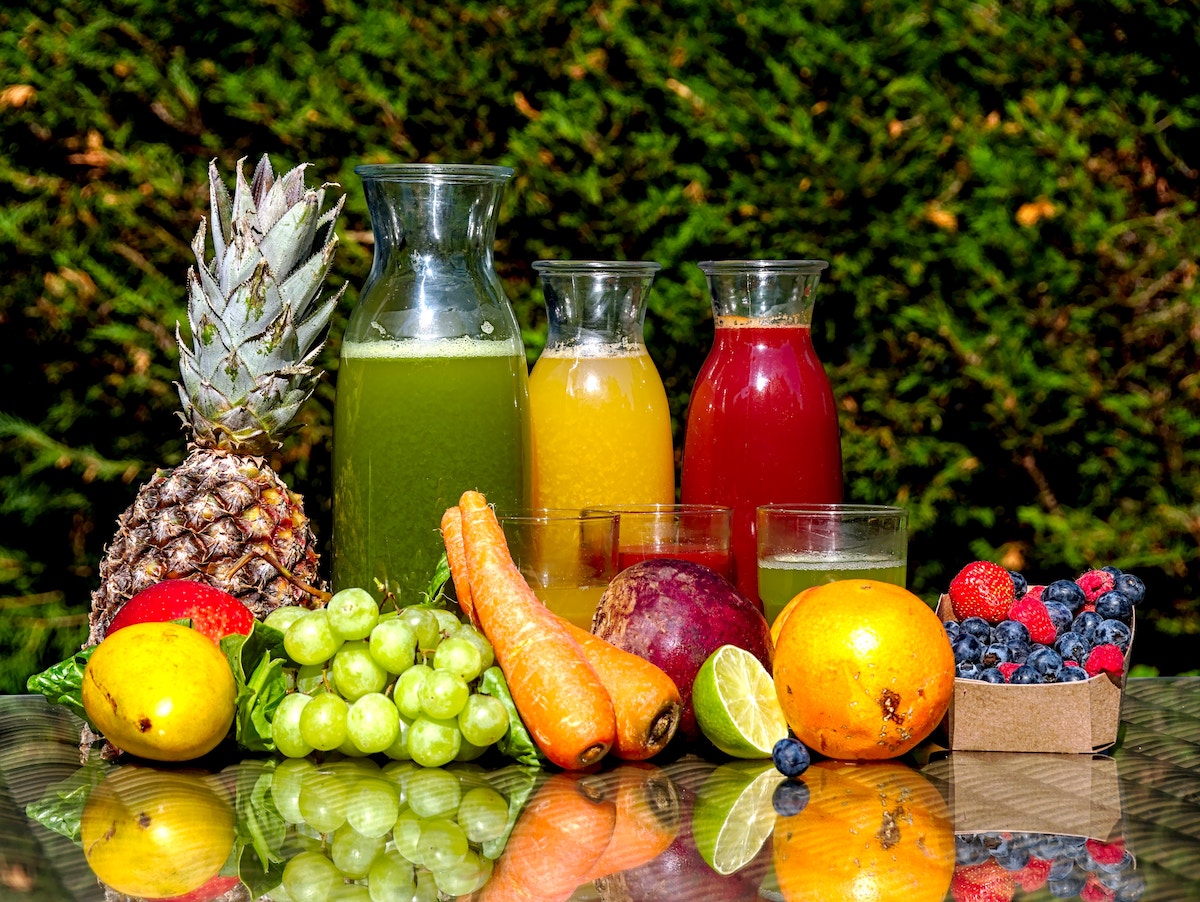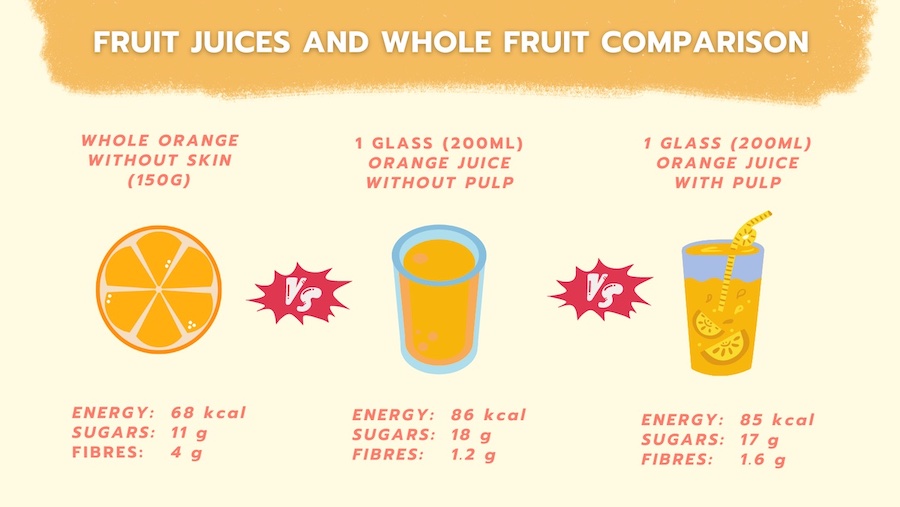Fruits are a crucial part of a healthy diet, and most people know that eating a variety of them can offer several health benefits. However, there are significant differences between consuming whole fruits and drinking fruit juices. Let’s dive deeper into the advantages and drawbacks of each option.
THE KEY BENEFITS OF WHOLE FRUITS
Whole fruits contain fibres, vitamins, minerals, and antioxidants that play a critical role in maintaining a healthy body. Fibres in fruits promote satiety and help regulate blood sugar levels while also supporting digestive health.
Vitamins and minerals like vitamin C, potassium, and magnesium are crucial for a strong immune system, healthy skin, and strong bones. Additionally, antioxidants help reduce inflammation, which can prevent chronic diseases like heart disease and cancer. Eating a variety of whole fruits ensures that you get a wide range of nutrients, supporting overall health and wellbeing.
However, there are some downsides to consider when it comes to whole fruits. Firstly, they require proper storage to stay fresh and can take up a lot of space. Secondly, they may not always be available or affordable in certain countries or regions, depending on the season. Lastly, some people may experience digestive discomfort when consuming whole fruits, especially those with high fibre content.
WHAT ABOUT FRUIT JUICES?
Fruit juices are extracted from fruits and can have added sugars to enhance their flavour. While they may contain some of the vitamins and minerals present in whole fruits, they often lack the fibre content and the nutrients present in the pulp or skin. As a result, consuming fruit juices can cause spikes in blood sugar levels, leading to a higher risk of developing type 2 diabetes. Additionally, fruit juice can contribute to weight gain due to its high sugar content.
It’s important to note that not all fruit juices are equal. If you choose to consume some, it is best to opt for those that are 100% fruit juice without added sugars. These juices will provide you with some of the vitamins and minerals found in whole fruit.
THE BETTER OPTION
If you are looking to increase your fruit intake, it is best to consume whole fruits rather than fruit juices. Consuming a variety of whole fruits ensures that you are getting all the nutrients that fruits have to offer. Additionally, whole fruits are more filling and can help you feel satisfied for longer, preventing overeating.
However, if you are a big sugary soda drinker, swapping for fruit juices can be beneficial for your health. If you do choose to consume fruit juices, be sure to read the label carefully to ensure that it is 100% fruit juice without added sugars. Limit your consumption of fruit juice to a small glass per day, and try to pair it with a source of protein or healthy fat to help slow down the rate at which your body absorbs sugar.
IT’S ALSO ABOUT YOUR PREFERENCES
Incorporating more whole fruits into your diet can be a great way to improve your health and well-being. They are a convenient, portable, and delicious snack that can be enjoyed in a variety of ways.
However, if you find it challenging to consume whole fruits regularly, consider trying different types of fruits, experimenting with different preparation methods, or adding them to smoothies or salads. You can enjoy both whole fruits and fruit juices, the choice ultimately depends on your dietary needs, taste and preferences, and overall health goals. Seeking guidance from a nutritionist can be beneficial in creating a balanced and sustainable eating plan.
SEE ALSO:
Tristan Boetti is a sports nutritionist. Through his company Performance & Bien-Être Monaco, he works with professional athletes as well as recreationally active individuals to help them achieve their goals through customised nutrition plans and expert advice.

